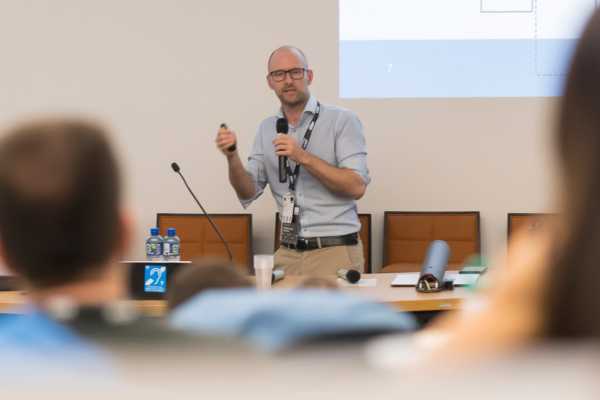
Utrecht, Netherlands
Eye Tracking Research Toolbox
When:
15 December - 17 December 2025
Credits:
1 EC
Read more
Social Sciences
When:
16 September - 20 September 2024
School:
Institution:
In cooperation with University of Cologne
City:
Country:
Language:
English
Credits:
2 EC
Fee:
550 EUR

The course will provide insights into the concepts, challenges and opportunities associated with data so large that traditional research methods (like manual content analysis) can no longer be applied, and traditional inferential statistics start to lose their meaning. You are introduced to strategies and techniques for capturing and analyzing digital data in communication contexts using Python. The course offers hands-on instructions regarding the several stages of computer-aided content analysis. More precisely, you will be familiarized with pre-processing methods, analysis strategies and the visualization and presentation of findings. The focus will be in particular on Machine Learning techniques to analyze quantitative textual data, amongst which both deductive (e.g., supervised machine learning) and inductive (e.g., unsupervised machine learning) approaches will be discussed.
This is a beginner's course. If you are looking to learn about the latest developments in machine learning for textual data (such as transformer models) you should consider taking a different course, e.g., “From Embeddings to LLMs: Advanced Text Analysis in Python” (23-27 September). These techniques will be (briefly) discussed towards the end of the course, but the focus lies on the basics of natural language processing and classical machine learning in Python.
Marieke van Hoof, University of Amsterdam, Netherlands. Rupert Kiddle, Vrije University Amsterdam, Netherlands.
You will find the course useful if:
- You are a social scientist who has the ambition to model quantitative textual data. Specifically, those who aim to describe, explain, or predict the content of large-scale textual data using computation techniques are likely to benefit from participating in this course.
- Note that non-textual data, such as images or networks, are not at the center of this course. Techniques we cover are partly generalizable to such types of data, but note that the course is not tailored towards them. If you are interested in working with images or networks you might be interested in one of the following courses: “Automated Image and Video Data Analysis with Python” (23-27 September, online) or “Introduction to Social Network Analysis with R” (16-20 September) or “Advanced Social Network Analysis” (23-27 September).
By the end of the course you will:
- be able to identify research methods from computer science and computational linguistics which can be used for research in the domain of social science
- have an understanding of the principles of supervised and unsupervised machine learning
- be able to explain the principles of these methods and describe the value of these methods
- know how to analyze textual data
- have basic knowledge of the programming language Python and know how to use Python-modules for questions relevant in the domain of the social sciences
- be able to independently analyze quantitative textual data using machine learning techniques.
Fee
550 EUR, Student/PhD student rate.
Fee
825 EUR, Academic/non-profit rate. The rates include the tuition fee, course materials, the academic program, and coffee/tea breaks.
When:
16 September - 20 September 2024
School:
Institution:
In cooperation with University of Cologne
Language:
English
Credits:
2 EC

Utrecht, Netherlands
When:
15 December - 17 December 2025
Credits:
1 EC
Read more

Rhodes, Greece
When:
18 September - 16 October 2025
Credits:
0 EC
Read more

Thessaloniki, Greece
When:
26 August - 29 August 2025
Credits:
4 EC
Read more